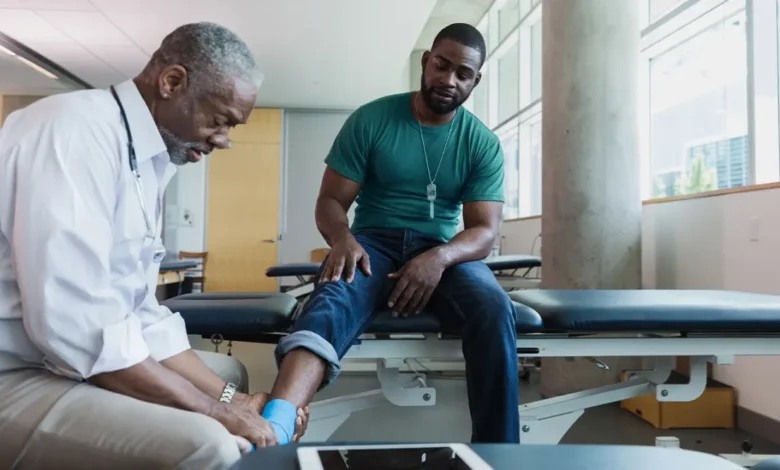Signs You Should See an Orthopedic Specialist, Not Just a General Doctor

Many people who experience body pain start by visiting a general doctor and hope for quick answers. While general practitioners (GPs) are excellent for overall health concerns, some conditions require deeper and more specialised understanding of bones, joints, muscles, and the entire musculoskeletal system. This is where an orthopedic specialist becomes essential. Orthopaedic problems often develop slowly and silently. A simple ache may seem manageable at first, but without proper diagnosis it can turn into chronic pain or long-term mobility issues. Knowing when to seek specialist help can make the difference between temporary discomfort and a long-lasting condition. Below are the key signs that indicate it may be time to consult an orthopaedic specialist Singapore for a thorough assessment and targeted treatment.
1. Persistent Pain Lasting More Than a Week
Pain that does not improve after several days is often a sign of an underlying musculoskeletal issue. General doctors may prescribe rest or pain relief, but if discomfort continues, it may indicate inflammation, joint degeneration, ligament strain, or nerve compression. Orthopaedic specialists use targeted assessments to identify the exact cause.
2. Pain That Interferes With Daily Activities
If pain stops you from walking comfortably, lifting objects, bending, sleeping well, or even typing, it should not be ignored. Many musculoskeletal conditions worsen over time if left untreated. Seeing a specialist ensures early treatment and prevents long-term damage.
3. Limited Range of Motion or Stiffness
When joints start to feel stiff, tight, or less flexible, this could be due to inflammation or early arthritis. Other causes include tendon irritation or muscle imbalance. Orthopaedic specialists can analyse movement patterns and identify which structures are affected, providing personalised treatment and exercise recommendations.
4. Recurring Pain in the Back, Neck, Knees, or Shoulders
Pain that disappears and returns repeatedly often indicates a deeper issue. Common causes include posture problems, sports-related overuse, weak muscles, or nerve compression. General doctors may address symptoms, but specialists identify and treat the root cause so the cycle of pain does not continue.
5. Numbness, Tingling, or Radiating Pain
Symptoms such as numbness, tingling, weakness, or pain that spreads down the arms or legs often point to nerve involvement. This may be due to disc problems, nerve compression, or spinal alignment issues. These conditions require specialised evaluation to prevent worsening.
6. Difficulty Bearing Weight or Feeling Joint Instability
If a knee suddenly gives way, a hip feels unstable, or an ankle cannot support your weight, this may indicate ligament damage or cartilage wear. Instability increases the risk of falls and further injury. Orthopaedic assessment is necessary to prevent long-term problems.
7. Old Injuries That Never Fully Healed
Previous injuries from accidents, sports, or daily activities can return months or years later. Pain, weakness, or swelling that persists is often a sign that the injury did not heal correctly. Orthopaedic specialists can reassess the injury and create a plan to restore mobility and strength.
8. Visible Swelling or Joint Deformity
Swelling, unusual shape, or reduced movement in a joint often indicates inflammation or internal damage. A general doctor can provide temporary relief, but an orthopaedic specialist can determine whether ligaments, cartilage, or other structures are affected.
Why an Orthopaedic Specialist Is Different From a GP
General doctors provide broad medical care, but orthopaedic specialists focus exclusively on the musculoskeletal system. They are trained to diagnose and treat bone problems, joint issues, tendon and ligament injuries, nerve-related pain, chronic conditions, and sports injuries. Specialist care reduces the risk of long-term damage and provides targeted treatment instead of general symptom relief.
When to Visit an Orthopedic Clinic
If pain, stiffness, or mobility concerns are affecting your daily life, it may be time to visit an orthopaedic clinic for a complete evaluation. Early diagnosis prevents small problems from becoming serious. Specialists can recommend physiotherapy, manual therapy, strengthening exercises, ergonomic adjustments, or further testing based on your condition.
Act Early to Protect Your Mobility
Musculoskeletal issues rarely resolve fully without proper care. Ignoring symptoms can lead to chronic pain and long-term limitations. By consulting an orthopaedic specialist early, you receive expert guidance, accurate diagnosis, and personalised treatment that helps restore comfort, strength, and mobility.




